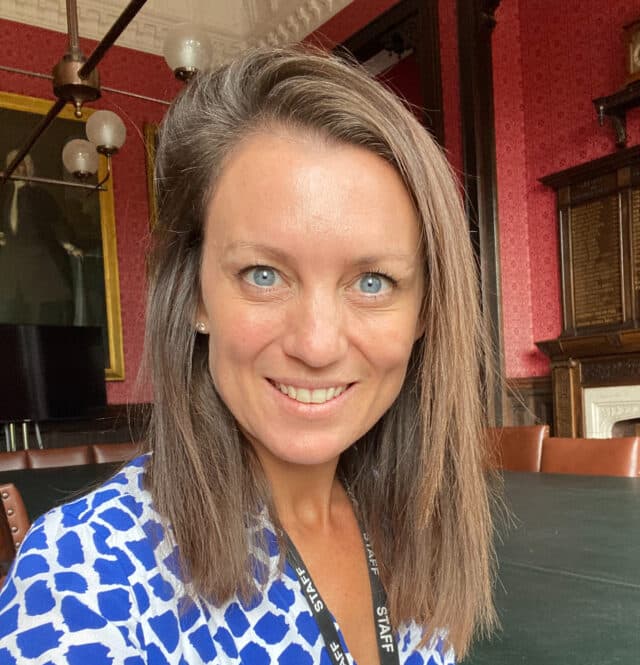News
Language associations, unions and exam boards unite in call for rethink of reform of GCSE Modern Foreign Languages
MEDIA RELEASE FROM ASCL, ALL, AQA, HMC, ISMLA, NAHT, NALA, Pearson Edexcel and WJEC Eduqas
Nine organisations directly involved in, or with an interest in, the teaching of languages in secondary schools have joined forces to call for a rethink of government proposals to reform the teaching and assessment of modern foreign languages at GCSE level.
The group comprises three educational trade unions and professional associations (Association of School and College Leaders, the National Association of Head Teachers, Headmasters’ and Headmistresses’ Conference), three language subject expert associations (Association for Language Learning, Independent Schools Modern Languages Association, National Association of Language Advisers) and three exam boards (AQA, Pearson Edexcel, WJEC Eduqas).
The organisations have signed a joint statement to the government calling for a new, second phase of design and development to be undertaken by the Department for Education in collaboration with subject stakeholders, by Easter 2022.
The group believes that although the reform is well intentioned, its central proposal for students to learn a set of up to 1,700 frequently used words will not ultimately result in greater engagement with modern foreign languages at GCSE level.
The signatories are concerned the proposals do not promote the core communication elements of learning a language – listening, speaking, reading and writing – whilst also creating a risk of undermining the teaching of languages in both primary education and at A-level.
The group said: “We recognise the GCSE as the pivotal moment within the languages system, around which other key phases and stages revolve.
“We recognise, too, the critical importance of ensuring that the languages curriculum is viable and enjoyable for students right across the UK’s communities, and are concerned by current patterns of unequal uptake.
“While the proposals were based on a segment of relevant published research, we note there is a considerable body of research which validates our concerns.
“We also note that the proposed model of learning and assessment is a risky one, given the lack of international precedent and absence of independent evaluation.
“It remains our collective goal to increase uptake in Modern Language learning, while continuing to raise standards through a knowledge-led model, and help ensure that learners experience a carefully planned, manageable curriculum which delivers genuine, real-life linguistic proficiency and the wider benefits that language-learning provides.”
Geoff Barton, General Secretary of the Association of School and College Leaders, said: “There seem to be very few people, language experts included, who agree with the DfE’s view that this reform is the way to inject new life into the existing modern foreign languages GCSE.
“An approach is needed which encourages a love of learning of these subjects. Requiring students to grind their way through a list of words is a fundamentally flawed approach that will not enthuse students and we urge the new ministerial team at the DfE to take a step back and rethink this reform.”
On behalf of the Management Board of the Association for Language Learning, Chair Professor René Koglbauer said: “From the outset of the GCSE in modern foreign languages, there has been a focus on communication as a key purpose and access to a wide-ranging, relevant vocabulary. All of this, it is suggested, would be replaced by a focus on phonics, a restrictive vocabulary list and a more extensive list of grammar.
“Many members are concerned that the proposals, although well-intentioned, will not lead to the intended impact of increasing the take-up of students’ learning languages.”
Dr Simon Hyde, General Secretary and Membership Secretary at The Headmasters’ and Headmistresses’ Conference, said: “We are concerned by the narrow focus of the current proposals, which we do not believe will address the issue of declining numbers of students wanting to study languages, and may in fact have a negative impact on enjoyment and attainment in this vital subject area.”
Oliver Hopwood, Chair of the Independent Schools Modern Languages Association, said: “The design of the GCSE is of critical importance if we are to maintain and enhance the health of language learning at all levels, from primary right up to higher education.
“The proposals as they currently stand risk undermining both participation and attainment in language learning at all levels.”
Jenny Carpenter, President of the National Association of Language Advisers, said: “To ensure that young people get the most from their language learning, we call upon the DfE to rethink the proposed changes to GCSE subject content.
“We believe that a collaborative approach to reform which involves subject associations, associations for school leaders, exam boards and the DfE is essential.”
Paul Whiteman, general secretary of school leaders’ union NAHT, said: “We absolutely support aims to improve student’s language learning but the current plans for GCSE reform could actually serve to decrease participation and enjoyment. DfE needs to pause and work with subject experts to review the proposals.”
Katy Lewis, Head of English, Drama and Languages, at Pearson Edexcel, said: “We support any action which can help to make Modern Foreign Languages more accessible and engaging for young people and we are committed to helping DfE to shape the future content of these GCSE qualifications.
“Right now, we think the proposals could benefit from additional time to review, to ensure they will achieve the aims that we are all working towards, and ultimately help more young people of learn a language.”
Ian Morgan, Chief Executive of WJEC Eduqas, said: “We are committed to working closely with the full range of subject stakeholders on the design and development of GCSE modern foreign languages qualifications and look forward to continuing our engagement with DfE.”
ENDS


